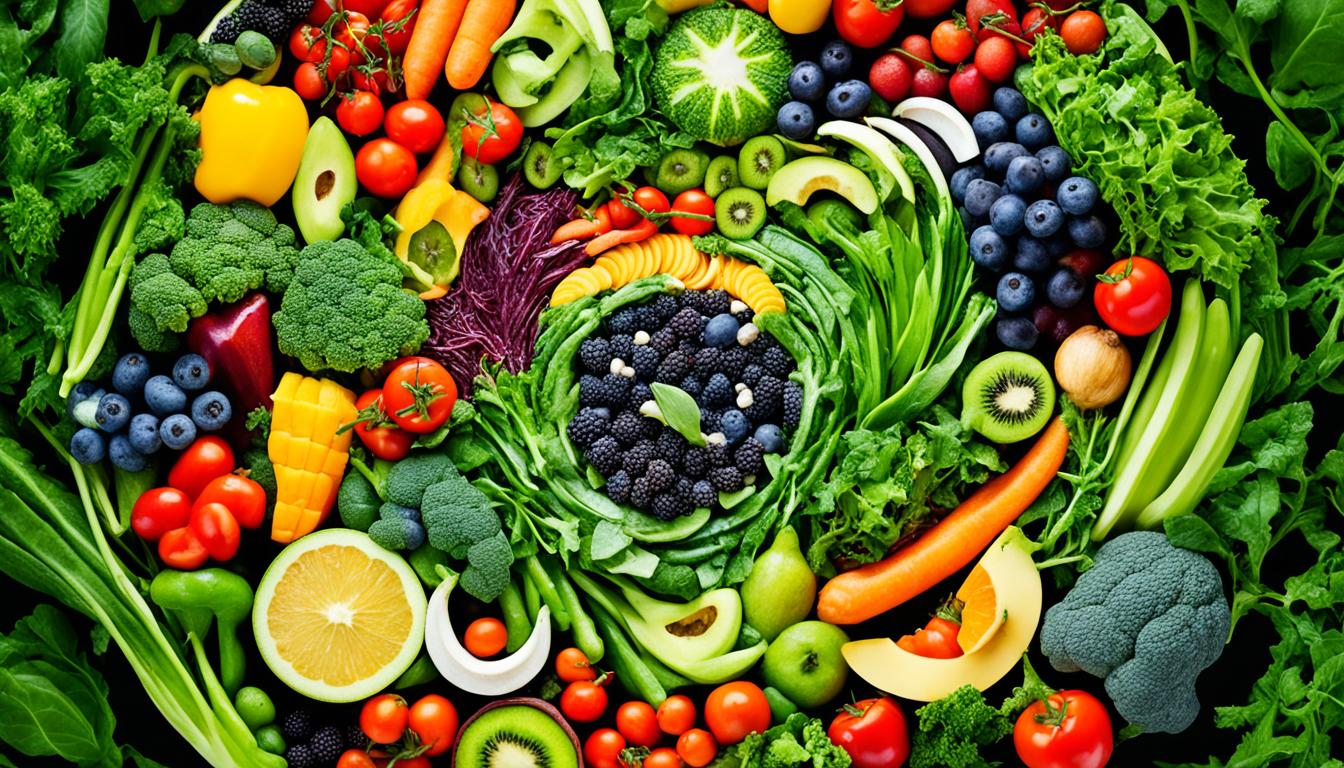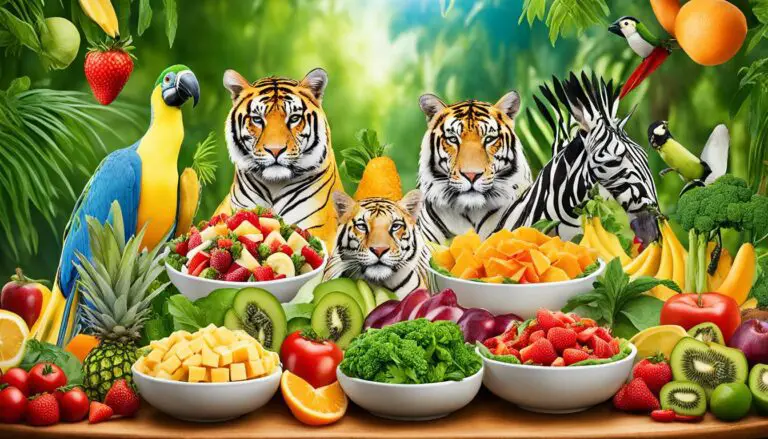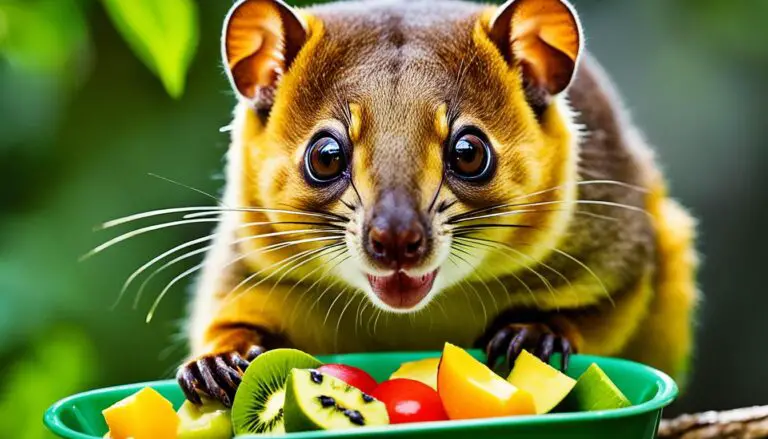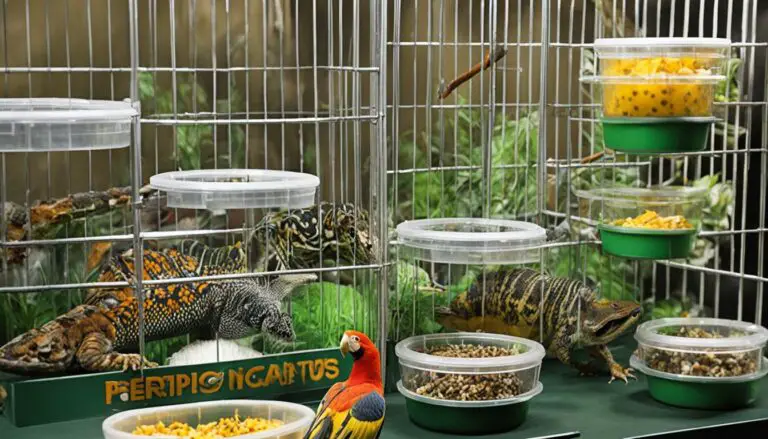Optimizing Herbivorous Reptile Nutrition & Diet
Did you know that how you care for herbivorous reptiles is super important? Things like temperature, humidity, and cage setup affect what they eat. It’s crucial to give them the right foods for their health.
Key Takeaways:
- Proper husbandry is key to keep herbivorous reptiles healthy.
- Temperature, humidity, and cage type can affect their feeding habits and what nutrients they get.
- A good diet for them includes things like special pellets, veggies, grass hay, and a bit of fruit.
- Be careful when picking commercial foods for your pet, and check the nutrients on the package.
- They may need supplements to make sure they’re getting everything they need.
Feeding Habits and Dietary Needs of Herbivorous Reptiles
Herbivorous reptiles eat mainly plants. This includes leaves, flowers, and fruits. They are specially designed to digest these foods with a process called hindgut fermentation. This helps them get the most nutrients from what they eat.
It’s crucial to mimic their natural diet for proper care. This means giving them lots of different plant foods. A good menu might have herbivore pellets, veggies, hay, and a bit of fruit.
Figuring out how much to feed these reptiles is key. You should give them 1% to 4% of their weight in dry food a day. This keeps them healthy and growing strong.
The Importance of Variety in Herbivorous Reptile Diets
Herbivorous reptiles need a mix of plants to stay healthy. Each plant provides different vitamins, minerals, and fiber. A varied diet helps them get all the nutrients they need.
- Herbivorous reptile pellets: These are great as part of a meal but not the only thing they should eat.
- Vegetables: Offer a variety, like leafy greens, peppers, squash, and carrots. They’re full of good-for-you nutrients.
- Grass hay: It’s essential for their digestion and helps avoid tummy troubles.
- Fruit: Fruits are a nice treat but should be given in small amounts because they are sugary.
Some herbivorous reptiles have specific food needs. To cater to your reptile’s diet, do your homework.
Don’t forget about water. It’s a crucial part of their diet for staying hydrated. Always have fresh water for your reptile.
Knowing what to feed your herbivorous reptile promotes good health. With the right diet, they’ll thrive and be happy.
Commercial Diets for Herbivorous Reptiles
There are many options for feeding herbivorous reptiles. These include frozen, freeze-dried, and canned options, among others. They are a convenient choice compared to finding fresh foods or live prey.
However, choosing the right commercial diet is key. You should pick products with clear nutrient information and a logical design. Many are advertised well, but not all are really the best for your pet.
“Careful consideration should be given to the formulation and nutrient content of commercial diets before choosing one for your reptile.”
It’s vital to check what a diet offers before you buy it. Look for foods that have all the necessary nutrients, vitamins, and minerals. Also, consider those recommended by experts like herpetologists.
Table: Comparison of Commercial Herbivorous Reptile Diets
| Brand | Form | Ingredient List | Nutrient Concentrations | Price |
|---|---|---|---|---|
| Brand A | Pellets | Organic vegetables, fruits, and herbs | Optimal levels of fiber, vitamins, and minerals | $$ |
| Brand B | Freeze-dried | Mixed greens, flowers, and botanicals | High in vitamin C and calcium | $ |
| Brand C | Canned | Organic vegetables and legumes | Rich in antioxidants and essential fatty acids | $$$ |
Remember, every reptile may need slightly different nutrients. Watch how your pet reacts to the new diet. If they don’t seem well, talk to a vet who knows about reptiles.
In conclusion, commercial diets are a great choice for herbivorous reptiles. But, you must be careful about what you choose. Always put your reptile’s health first by meeting their specific dietary needs.
Prey Selection and Nutrient Content
Choosing the right food for carnivorous reptiles is key. They need diets that fit their species and are full of nutrition. The nutrients in their food keep them healthy. Missing nutrients can hurt their health.
Keep frozen mice or rats ready to eat in the best conditions. This keeps the good stuff in, like vitamins and proteins. Store them cold but in a way that won’t damage them. It keeps their food value high.
“Feeding a variety of prey species is recommended to ensure a diverse nutrient intake.”
Changing the types of food given is great for these reptiles. It keeps their diet varied. This way, the reptile gets all the good stuff like vitamins and amino acids. It’s a good plan for their health.
Some reptiles might really like one type of food, perhaps just snakes. But, eating only one thing is not a great idea. This might cause problems if the food is hard to find or isn’t that healthy. A varied diet is key to keeping them well-fed.
Diverse Prey Species for Optimal Nutrient Intake
- Small rodents (mice, rats)
- Chicks (for larger reptiles)
- Guinea pigs (for larger reptiles)
- Quail (whole or pieces)
- Chicken hearts, livers, or gizzards
- Insects (crickets, mealworms, dubia roaches)
- Goldfish (for aquatic reptiles)
Mixing up the menu keeps reptiles healthy. It gives them all the needed nutrients. Different foods, different nutrients. This is the secret to their health.

Choosing the right prey and mixing up their food keeps reptiles happy and healthy.
Disease and Impaired Renal Function
Gout is a common issue among captive reptiles. It happens when there is too much uric acid. This might come from eating low-quality protein or from using body tissues as fuel. Poor kidney function and not drinking enough water can also lead to gout. To avoid gout, make sure your pet gets enough water. Also, don’t feed them low-protein diets. Aquatic reptiles handle waste differently. They might release extra nitrogen as urea or ammonia. This depends on what they eat and how much they drink. Good care in what and how you feed your reptile is key for their health.

Nutritional Disorders and Diet History
Diet history is key when looking at a reptile’s health. Many reptiles face malnutrition issues that can cause them to die early. Getting a full diet history when a reptile is sick is very important. It helps check how much energy and nutrients the reptile took in. With a diet history, we can spot nutritional problems early.
Often, problems start long before we see physical signs. By looking at what they’ve eaten, we can take action early. This is a big part of helping reptiles stay healthy.
Vets ask specific questions to understand what a reptile needs. They might ask about the food type, how often they ate, and any supplements. This info helps them figure out if the reptile is getting too much or too little of something. Then, they can give advice on how to fix it.
“A thorough diet history is crucial for proactive health management and early detection of potential nutritional problems.”
Knowing what a reptile ate before is crucial for making a good diet plan. Each reptile type has its own food needs. A good diet keeps them healthy and away from diet-related problems.
Importance of Diet History
Looking at a reptile’s diet past can tell us a lot. It shows if they’ve had enough nutrients or if there are any shortfalls or surprises.
Diet histories help vet make the right diet plans. This keeps each reptile as healthy as possible.
Growing this diet history is also key. It shows how well the reptile is doing with its food. Owners can use this to keep their pets’ diet on the right track.
For plant-eating reptiles, their diet must be varied and rich. Alongside vet snacks and some fruit. This makes sure they get all the nutrients they need to be healthy.
| Nutritional Disorders | Symptoms | Causes |
|---|---|---|
| Malnutrition | Lethargy, weight loss, poor growth, weakened immune system | Inadequate diet, improper feeding practices |
| Vitamin Deficiencies | Metabolic bone disease, muscle weakness, poor skin condition | Inadequate vitamin intake, lack of sunlight exposure |
| Mineral Imbalances | Shell deformities, organ dysfunction, reproductive issues | Inadequate or excessive mineral intake, improper supplementation |
| Impaction | Loss of appetite, reduced activity, constipation | Ingestion of indigestible substrates or foreign objects |

Regularly watching diets, and keeping a good diet history prevents many problems. Staying in touch with a vet can help you give your reptile the best food. This helps them live a long, healthy life.
Supplements and Nutritional Support
Supplements are very important for the health of reptile pets. They make sure these animals get all the nutrients they need. Always ask a vet for the best advice on giving supplements. For instance, bearded dragons might need specific ones like calcium and vitamin D3. Using supplements changes depending on the type of reptile and its specific needs.
When a reptile can’t eat food on its own, there are ways to help. You can use a syringe, a tube in its stomach, or another tube near its throat. These methods make sure the reptile gets the nutrients it needs, even if it can’t eat by itself.
If a reptile hasn’t eaten for a while, something bad can happen. This is called refeeding syndrome, and it can be deadly. It happens when a starved reptile starts eating again and its body overreacts. To avoid this, it’s important to give food back to the reptile slowly. Always watch how the reptile reacts to eating after not eating for some time.

“Supplements can play a vital role in meeting the nutritional needs of reptile pets.”
Key Points:
- Supplements help fill nutritional gaps and ensure optimal health
- Consult a veterinarian for guidance on supplement use
- Bearded dragons and other reptile species may require specific supplements
- Nutritional support can be provided through various methods
- Refeeding syndrome can occur in chronically starved reptiles, requiring careful caloric supplementation management
Environmental Factors and Seasonal Adjustments
Reptiles are picky eaters, and their diets change with the weather. The amount of food and what they eat is all affected by how warm or damp their environment is. To keep them healthy, we have to change up what they’re eating to match the season.
When it’s chilly, reptiles need to eat less to save energy. But, when it’s too hot, their bodies ask for more food. It’s all about watching them closely in their homes to figure out what’s best for their diets.
It’s crucial to adjust what we feed them as the year goes by. This way, they stay in good shape because their food matches the outside world.
Conclusion
It’s crucial to give herbivorous reptiles the right food. This starts with keeping their living area just how they like it. Make sure they have the right temperature and space.
It’s also key to give them food with the right vitamins and minerals. This means picking the best plant-based foods for them. You might need to add some extras to their diet, like certain supplements.
It’s a good idea to mix up what you feed them. Herbivores like a variety of foods. Besides their normal meals, sometimes they can enjoy a little piece of fruit.
Some might even like special reptile food you can find in stores. Just be picky about what you choose, making sure it’s good for your pet. Also, watch what they eat based on the season. Their needs might change with the weather.
Following these steps helps you take really good care of your plant-eating pets. For the best advice, talk to an expert. They can help you make a perfect food plan for your pet. With good food and care, your reptile friend can live a fantastic life.
FAQ
What factors should I consider for providing herbivorous reptiles with optimal nutrition?
What should be included in the diet of herbivorous reptiles?
Are commercial diets suitable for herbivorous reptiles?
What should I feed carnivorous reptiles?
What is gout and how can it be prevented?
Why is a diet history important for assessing the nutritional status of reptiles?
Are supplements necessary for reptiles?
How do environmental factors affect reptile nutrition?
How can I provide optimal nutrition for herbivorous reptiles?
Source Links
- https://www.dvm360.com/view/current-thoughts-reptile-nutrition-proceedings
- https://cuddleclones.com/blogs/all/the-4-steps-to-building-the-perfect-diet-for-reptile-pets
- https://www.merckvetmanual.com/management-and-nutrition/nutrition-exotic-and-zoo-animals/nutrition-in-reptiles
Peter Stones is the founder of Exotic Pets Place, the leading online resource for exotic pet care information.
With over 10 years of hands-on exotic pet ownership experience, he is deeply passionate about sharing his expertise to help others properly care for their unusual pets.
When he's not writing extensively researched articles or connecting with fellow exotic pet enthusiasts worldwide, you can find Peter at home tending to his own beloved menagerie of exotic animals.







